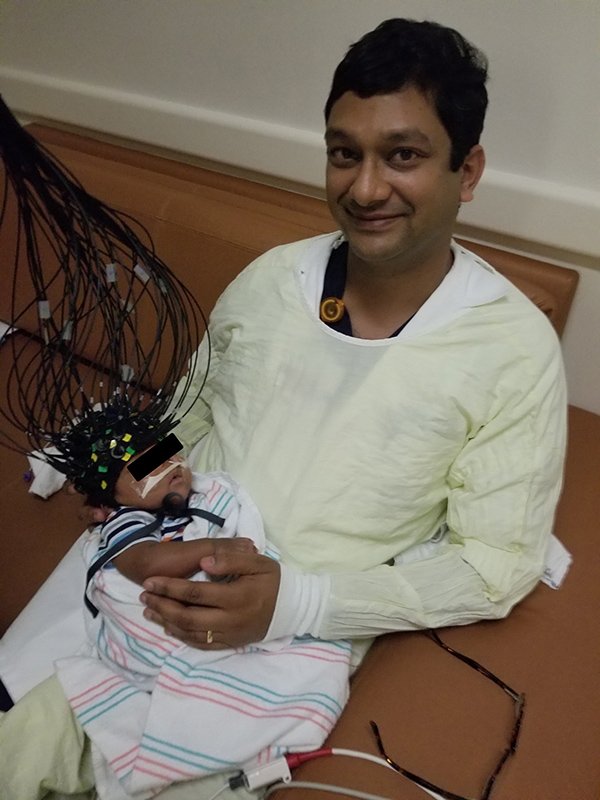Dr. Manish Shah in the Department of Pediatric Surgery, Division of Pediatric Neurosurgery worked with Dr. Eva Sevick and Dr.Banghe Zhu at the UT Center for Molecular Imaging to develop a novel imaging device for babies with brain disorders

Using night-vision goggle technology, near-infrared light, and high-resolution detectors, a wearable imaging device for awake infants with brain disorders was developed by a team of scientists and a pediatric neurosurgeon at The University of Texas Health Science Center at Houston (UTHealth). Cap-based Transcranial Optical Tomography (CTOT), which utilizes a cap for the baby’s head, is the first high-resolution, whole-brain functional imaging device that does not require the baby to be put under anesthesia.
The research was recently published in The IEEE Transactions on Medical Imaging Journal, a journal of the Institute of Electrical and Electronics Engineers. Read full article